Chief Master Sergeant of the Air Force JoAnne Bass is preparing to take a “hard, holistic look” at the world of professional military education as part of her enlisted development action plan due out this fall, the service’s top enlisted leader told Air Force Times Wednesday.
“How do we develop our Air Force — specifically, our enlisted corps from E-1 to E-9 — in a way that will allow us to be the very best Air Force that we need to be in 2030 and beyond?” she said. “The foundation of all of that is really leadership development.”
Bass has spoken publicly about the budding strategy for about a year, and the service now appears ready to define where the plan is headed. Enlisted leadership wants to roll out the plan in September or October and implement it over the next 12 to 18 months, she said.
The Air Force will begin a series of 90-day deep dives into enlisted professional military education later this month, calling on airmen’s experience to drive that strategy.
RELATED
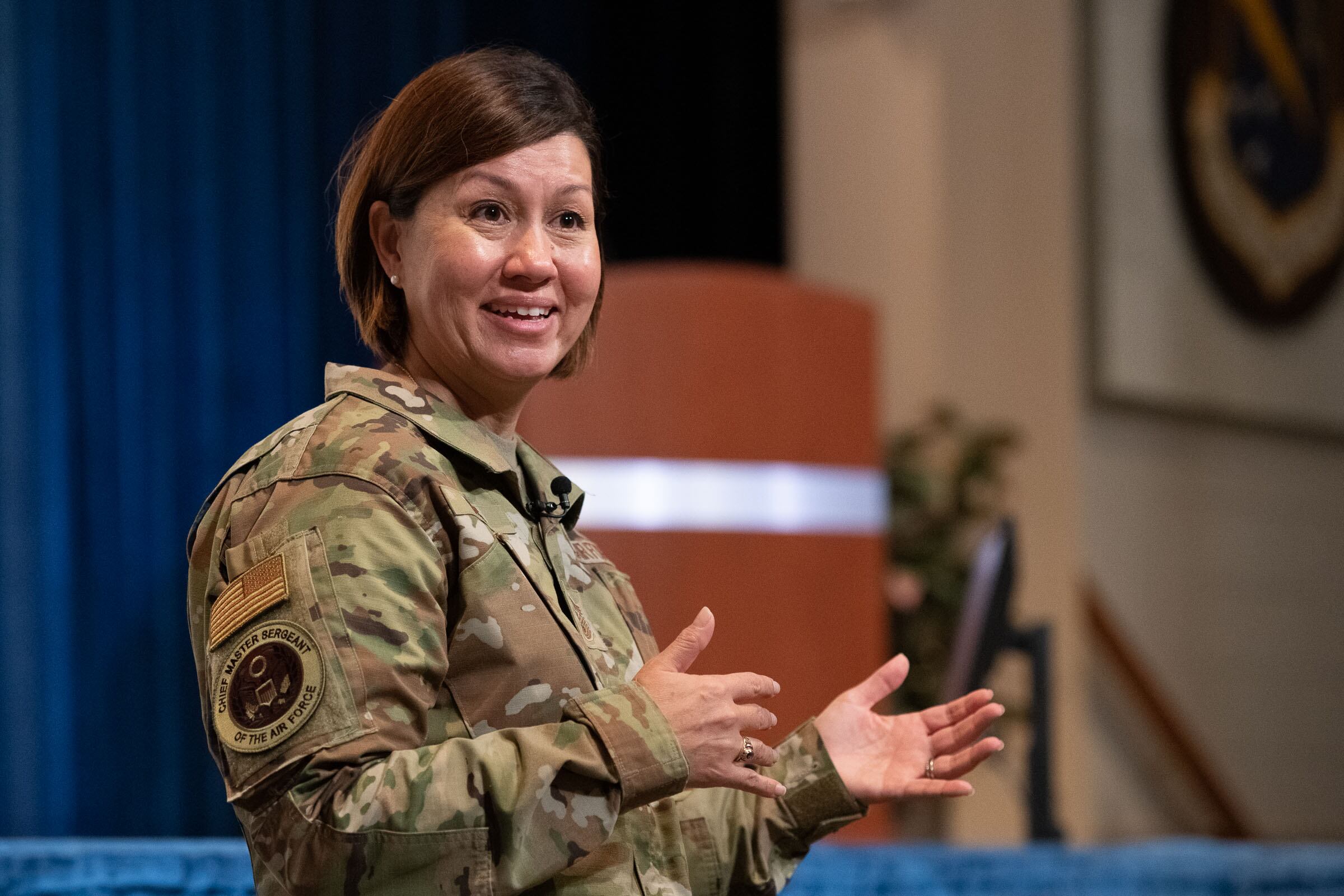
“We’ll start a 90-day sprint on, what does our first level of enlisted PME need to look like so that it can be optimal to growing frontline supervisors?” she said. “After that sprint is done, we’ll take another sprint focused on the second level of PME, which … we call our NCO Academy. Then we’ll do the Senior NCO Academy.”
PME encompasses multiple leadership schools and courses plus the Community College of the Air Force, the world’s largest community college system. Airman Leadership School teaches senior airmen, or E-4s, to supervise other enlisted airmen and is a key stepping stone to the rank of staff sergeant, or E-5.
The Noncommissioned Officer Academy and Senior Noncommissioned Officer Academy cater to technical sergeants (E-6), and master sergeants, senior master sergeants, chief master sergeants and command chief master sergeants (grades E-7 through E-9), respectively. Both schools teach airmen to think strategically about airpower and boost managerial skills as they rise through the ranks.
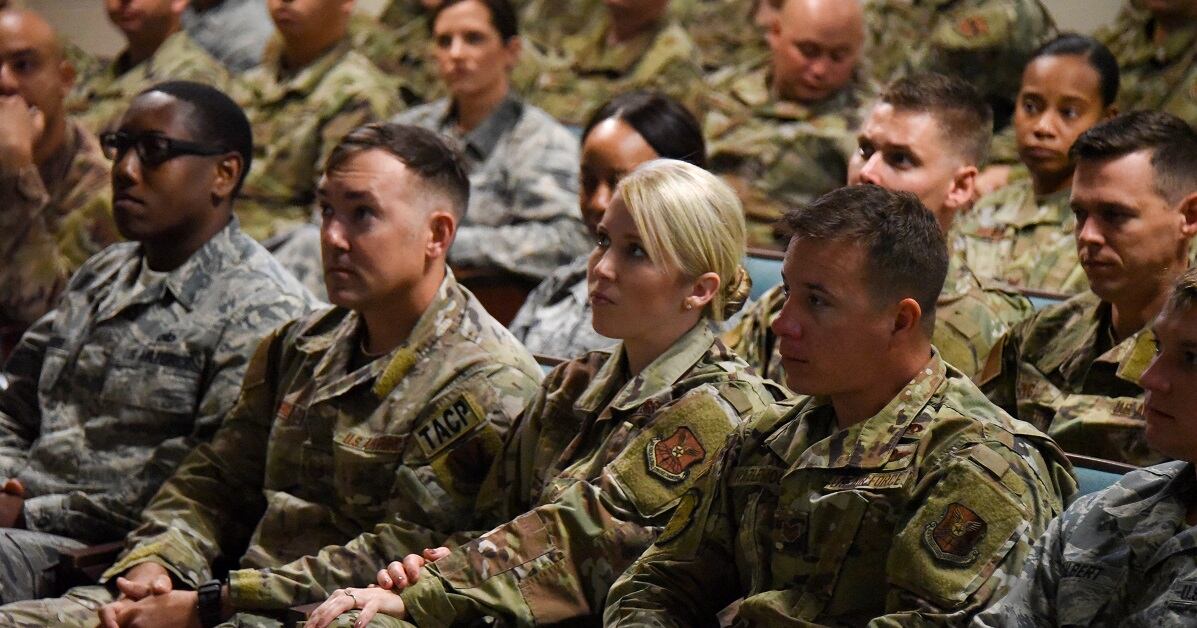
The Chief Master Sergeant Leader Course is the capstone of PME, offering “critical thinking and an enterprise-level view in order to educate, inspire, and develop chief master sergeants into strategic-level leaders,” the Air Force said.
Bass shied away from a prescriptive view of what the courses may become. But as the service looks to the future, it could turn again to remote-learning options and other features of modern education.
RELATED
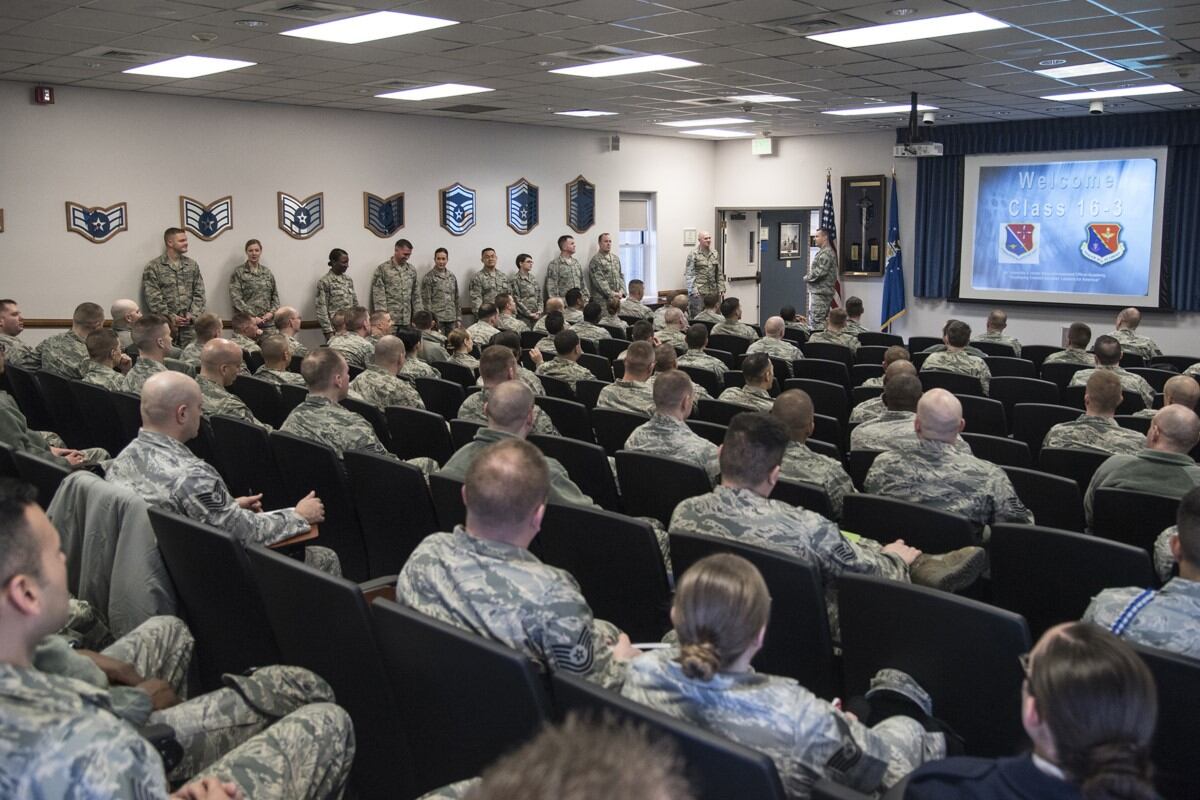
“We actually want the people to think unconstrained,” she said. “Some of that could be, how is it delivered? Some of it could be, what is the curriculum? How often?”
On top of the 90-day sprints, Bass said another working group will take the long view at what PME could entail 10 years from now. Education now should not look the same as it did in the early 1990s, she said, and it probably won’t look the same in 2030 as it does now.
That’s a chance to adapt to a directive from Defense Secretary Lloyd Austin to grow PME’s focus on competition with China. PME could pivot to teaching leadership in a Cold War-style conflict, a better understanding of language and culture in the Indo-Pacific, and Western-style military equipment and leadership rather than counterinsurgency, Military Times previously reported.
PME changes will dovetail with other initiatives on Bass’s plate, like a blueprint app that lets airmen better manage their career progression, and building a more transparent job assignment system through Talent Marketplace or another IT platform.
PME is a frequent subject of scrutiny and has undergone several changes in recent years — including dumping a combined in-person and remote-learning system that began in 2014.
The Air Force said enlisted PME would become fully in-residence for active-duty airmen, and it expanded eligibility to those who had spent too few or too many years in service than what was needed to sign up. Just last year, the Air Force began allowing all pregnant and postpartum airmen to attend PME, rather than needing to seek a policy exception to join.
Revamping learning for the digital age has been a major focus elsewhere in the service in the past few years as well. Air Education and Training Command has incorporated augmented and virtual reality, and computer tablets with preloaded courses, into pilot and maintainer classes to let airmen move at their own speed — which has proven faster than traditional classroom learning. That may serve as a blueprint for the enlisted force as it looks to get creative with its own curriculum and pace of teaching.
RELATED
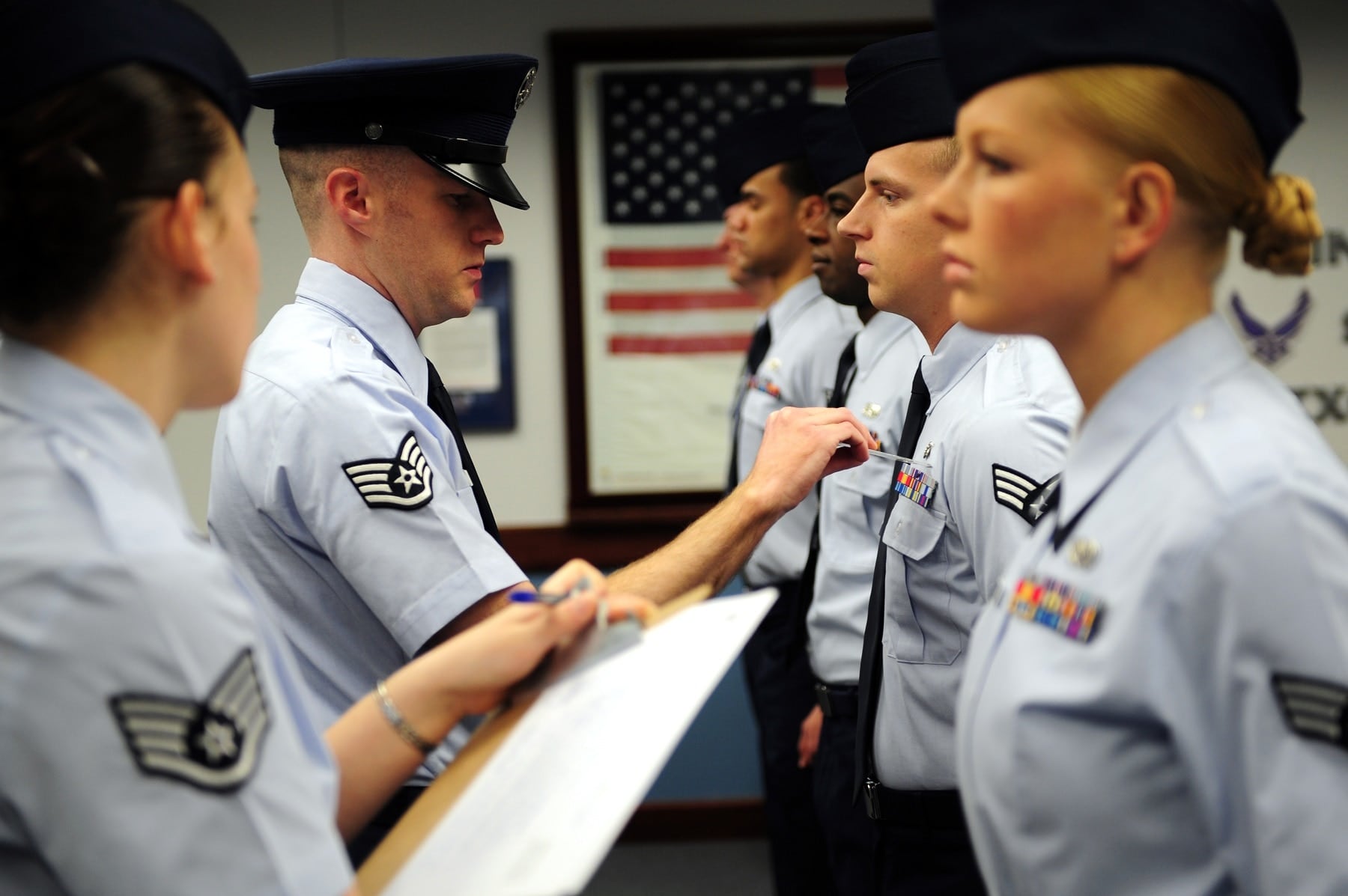
The ongoing coronavirus pandemic may shape those ideas as well.
“The pandemic forced us to learn how to communicate well through virtual means, and I think we’ll take that with us,” Bass said. “But we have to balance that with also being able to enjoy the benefits of face-to-face [interaction].”
A recent officer-focused study by the federally funded think tank Rand Corp. suggested Air Force PME could be overhauled further, including relocating courses from Maxwell Air Force Base, Alabama, which hosts the Senior NCO Academy and much of the service’s professional education. There are about a dozen NCO Academy locations worldwide, and about 70 Airman Leadership School sites.
“Stakeholders consistently noted that it would be easier to attract quality speakers and faculty at a more appealing location, and personal and family factors are highly cited influences on officers’ preferences for [intermediate and senior developmental education] options,” Rand researchers wrote. “It is no secret that the public school system is not optimal, and appealing career options for spouses are also likely limited.”
Bass hopes that rethinking enlisted education will shape more effective frontline supervisors, who act as mentors and teachers within a squadron. They are expected to be a resource for airmen on the job as well as in their personal lives, like spotting red flags for suicide.
In June, Lt. Col. Kevin Scholz, commander of the 736th Aircraft Maintenance Squadron at Dover Air Force Base, Delaware, argued that the role of frontline supervisors has shrunk since he entered the service in 1992. Squadron commanders and master sergeants took on tasks like handling rule infractions and certain training instead of relying on lower-level supervisors.
“Reinvigorate your staff and technical sergeants by delegating their rightful authority back to them,” Scholz wrote in an Air Force commentary. “That authority and responsibility is taught in Airman Leadership School, but so many times is not taken back to the work centers after graduation” because of the new norms.
“In order to ensure these efforts are working, you must continuously evaluate the effectiveness of your supervisors and coach and mentor them as required. These skills aren’t automatic and need to be nurtured by leadership,” he added.
RELATED
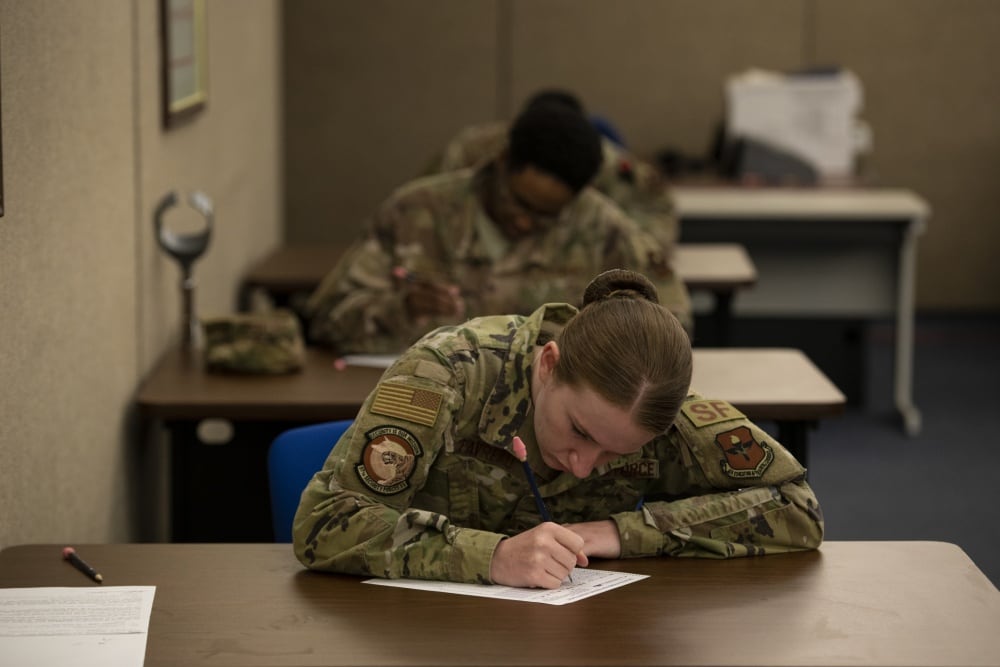
Enlisted airmen could also take cues from the Space Force, which is creating a new approach to military learning that better fits the young service’s needs.
Vice Chief of Space Operations Gen. David “DT” Thompson told Air Force Times on Aug. 12 that because of the technical nature of space-related combat jobs, the Space Force will push its members to pursue higher levels of specialized training rather than a more general education.
“For engineers, it might be advanced degrees. For operators, it might be everyone is required [to have] some level of advanced training,” he said. “For all of them, a deeper level of understanding of how the domain works and the systems that work. For our intelligence professionals, additional advanced education and training in how our adversaries may think or the ability to do strategic assessments.”
Bass told Air Force Times she’s keeping an eye on issues where the Space Force may be taking the lead, so the Air Force could follow suit. Digital literacy is one such priority for leadership in both services. Still, she said she’s not working on adopting any specific measures right now.
“While we are unique and appreciate the uniqueness of each one of our services, we can learn from each other,” she said. “If we don’t have to recreate the wheel, we will have synergies together.”
Rachel Cohen is the editor of Air Force Times. She joined the publication as its senior reporter in March 2021. Her work has appeared in the Washington Post, the Frederick News-Post (Md.), Air and Space Forces Magazine, Inside Defense, Inside Health Policy and elsewhere.




